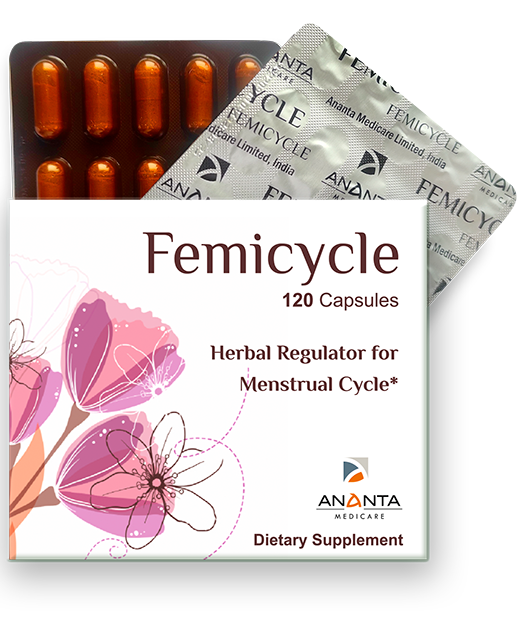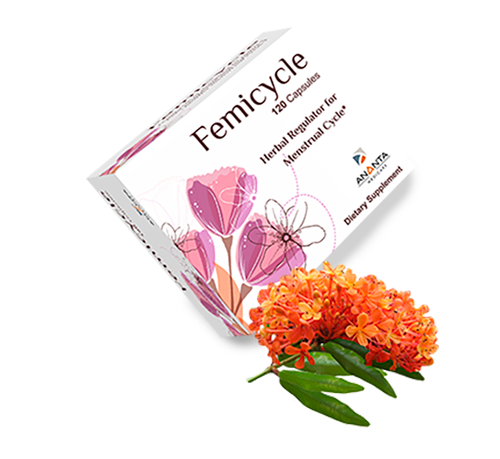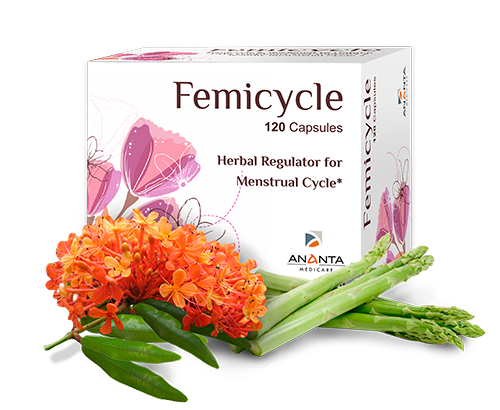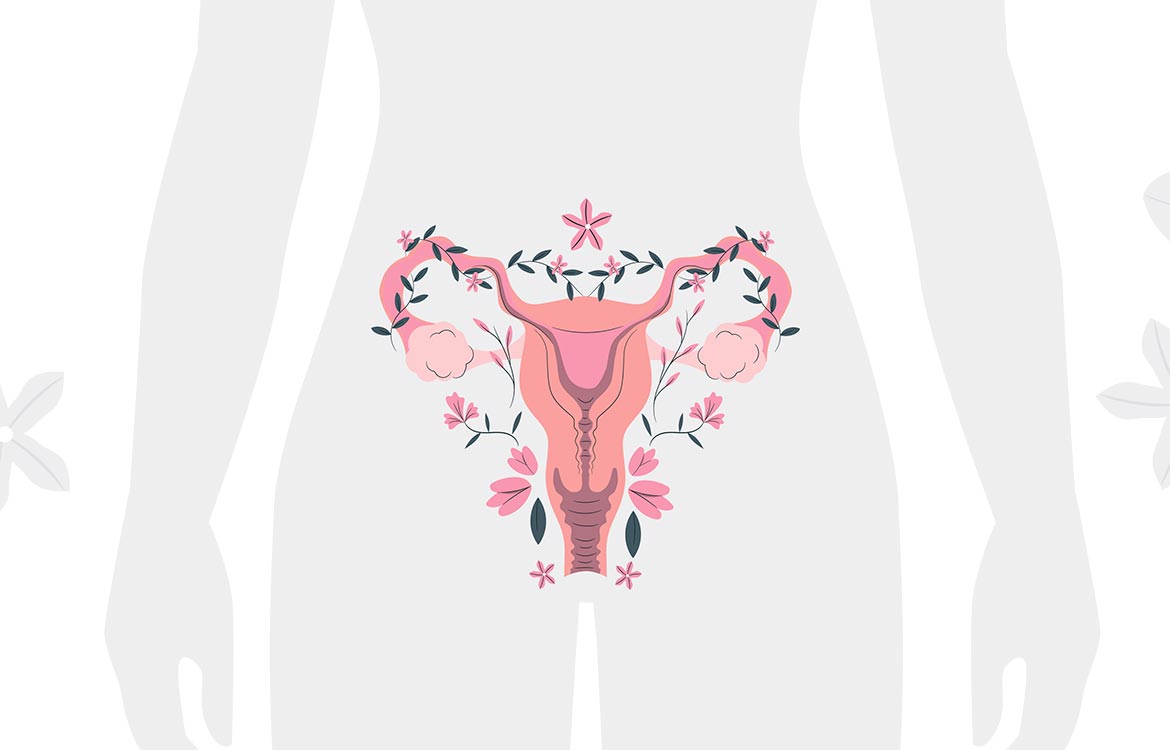
Femininity
Phytoestrogenic
properties

Comfort
Anti-inflammatory
properties

Hormone balance
Normalizes
hormonal
imbalance

Menstrual cycle
Has the ability
to normalize FSH
and LH levels
Femicycle normalizes the hormonal balance
at all levels of the endocrine system: pituitary gland,
hypothalamus, ovaries, endometrium.

Phytoestrogenic properties
Symplocos, Asparagus, Saraca show phytoestrogen properties. (It is important in the case of menstrual cycle disorders and low estrogen levels)
Anti-inflammatory properties
Symplocos, licorice, and turmeric exhibit anti-inflammatory properties. (It is important after inflammatory diseases of the pelvic organs, abortions)
Powerful normotonic for the reproductive system
Saraca indica (Ashoka) is a powerful tonic for the female genital area. Its effects are aimed at improving the condition of the uterine mucosa, rejuvenating the area, reducing pain, and stopping bleeding during menstruation.
Safe unlike hormonal products
Due to the plant components in its composition, it does not cause excess weight, works gently, and is safe, unlike hormonal drugs.

Clinically proven effectiveness
The clinical trials confirm the effectiveness and safety of Femicycle

Does not cause excess weight accumulation
Due to the plant components in its composition, it does not cause excess weight, works gently, and is safe, unlike hormonal drugs

Safer than hormonal products
This therapy along with efficiency has better tolerability, safety and excellent compliance
Active ingredients of FEMICYCLE
Manufacuring process complies with international
standards GMP, ISO 9001, ISO 22000, HACCP
Symplocos racemosa
extract
mg
Asparagus racemosus
extract
mg
Glycyrrhiza glabra
extract
mg
Saraca indica
extract
mg
Curcuma longa
extract
mg









Real results of herbal complex that helps keep
the urinary system health under control
Top 4 questions for our experts
From what age can Femicycle be taken?
How should Femicycle be taken?
What is the recommended duration for taking Femicycle?
Where can Femicycle be ordered with delivery?
Articles and research
Always pay attention to your health.
What is the menstrual cycle?
The menstrual cycle includes the follicular phase (follicle maturation), the ovulatory phase (ovulation), the luteal phase (corpus luteum), and menstruation. The luteal phase of the menstrual cycle begins immediately after ovulation and ends with the onset of menstruation. Disruption of the menstrual cycle is a pathological symptom of most reproductive organ disorders in women, including those that occur without other noticeable clinical signs...
Types of menstrual cycle disorders
All types of menstrual cycle disorders depend on the increase or decrease in the volume of menstrual blood, changes in cycle regularity, and pain during menstruation. Therefore, the following types of menstrual disorders can be identified: hypermenorrhea: a large volume of blood loss within one menstrual cycle. metrorrhagia: bleeding that occurs outside the menstrual cycle and without the shedding of the endometrium...
Deficiency of estrogens in reproductive age: how to understand and what to do?
An absolute insufficiency of sex hormones or an imbalance between them can lead not only to various menstrual cycle disorders but also to disturbances in follicle maturation and anovulation, making pregnancy impossible. While a low level of estrogens in menopause is considered a physiological norm, for women in reproductive age, it is a condition that not only disrupts their reproductive plans but also leads to systemic disorders in the whole body...

Ananta Medicare Limited
New Delhi - 110085, India










